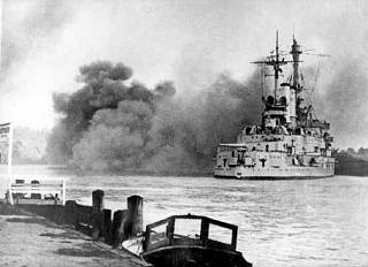Causes of World War Two
The causes of World War Two can be split up into two main sections - long term causes and short term causes.
There is not likely to be much doubt that one of the war’s long term causes was how angry Weimar Germany felt about the Treaty of Versailles. Another was the League of Nation’s failing to respond to significant international issues - in the 1930s this would be in Manchuria and Abyssinia. The League showed it was not able to have control over the powers which worked outside of accepted international law in both conflicts - in Manchuria’s case it was Japan and Mussolini’s Italy for Abyssinia.

Hitler must have realised that from an obvious weakness he could test the boundaries to see what he could and could not do. He defied the Treaty of Versailles when he introduced rearmament into Nazi Germany - the treaty had forbidden expansion of all three military arms but Hitler conveniently ignored this. In 1936 the Nazi party also reoccupied the Rhineland and Hitler again ignored Versailles’ ban of it. Europe did also not react when Austria and the Sudetenland were occupied - they only did so when Hitler’s determination to expand east and Czechoslovakia's remains along with Poland were next on his list of targets.
When Hitler referred to the Munich Agreement as a ‘scrap of paper’ he made his intentions obvious. Yet in 1938 a lot of the UK had been supporting Neville Chamberlain’s efforts to avoid war (appeasement) and he had public opinion on his side. A change only came when it was apparent that this had failed and the public sided with Winston Churchill who had claimed Chamberlain had gone down the wrong route.
See also: Italy and Germany 1936 to 1940
MLA Citation/Reference
"Causes of World War Two". HistoryLearning.com. 2024. Web.
